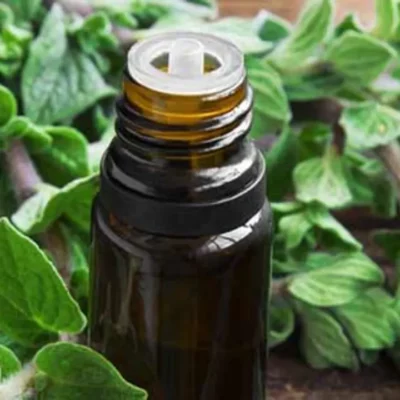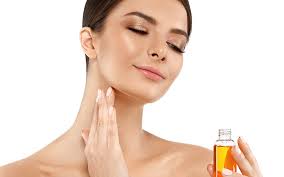
wellhealthorganic.com:vitamin-e-health-benefits-and-nutritional-sources
vitamin E is a fat-soluble antioxidant vitamin that plays a crucial role in maintaining good health. It has numerous health benefits and is essential for the proper functioning of many organs and systems in the body. Here are some of the health benefits of vitamin E and its sources:
Some good food sources of vitamin E include:
- Almonds
- Sunflower seeds
- Spinach
- Sweet potatoes
- Avocado
- Wheat germ
- Olive oil
- Peanut butter
It’s also important to note that vitamin E supplements should be taken with caution, as high doses can be toxic. It’s generally best to get your vitamin E from a balanced and varied diet.
Protects the skin
Vitamin E protects the skin from damage caused by free radicals and helps to prevent premature aging, wrinkles, and fine lines. It also helps to reduce inflammation and redness.
Vitamin E is renowned for its ability to protect the skin from damage caused by environmental factors such as pollution and UV radiation. This potent antioxidant helps to neutralize free radicals, which are unstable molecules that can cause cell damage and contribute to premature aging. As a result, vitamin E has been shown to improve skin health and reduce the appearance of wrinkles.
In addition to its protective properties, vitamin E also plays a crucial role in maintaining healthy skin function. It helps to strengthen the skin barrier by enhancing moisture retention and reducing water loss, thereby keeping the skin hydrated and supple. Vitamin E also promotes collagen production, which is essential for maintaining firmness and elasticity in the skin.
To reap the benefits of this powerful nutrient, it’s important to incorporate vitamin E-rich foods into your diet or consider adding a supplement. Some excellent dietary sources of vitamin E include nuts and seeds (such as almonds, sunflower seeds, and hazelnuts), avocadoes, leafy green vegetables (like spinach), and vegetable oils (such as olive oil). By protecting your skin from damage and supporting its overall health, vitamin E can help you achieve radiant-looking skin at any age.
Boosts the immune system:
Vitamin E helps to boost the immune system by promoting the production of white blood cells, which help to fight off infection and disease.
One of the most significant benefits of Vitamin E is its ability to boost the immune system by acting as an antioxidant. This essential nutrient helps to protect our cells from damage caused by free radicals, which can weaken our immune response and increase our risk of infections and illnesses. By neutralizing these harmful molecules, Vitamin E enables our immune system to function properly and fight off disease-causing pathogens.
In addition to its antioxidant properties, Vitamin E also plays a crucial role in regulating the production of cytokines – signaling proteins that help coordinate immune responses. Studies have shown that individuals with low levels of Vitamin E are more prone to infections and have weaker immune function than those with adequate levels. Therefore, incorporating sources of Vitamin E into your diet may help enhance your body’s natural defenses against harmful pathogens.
Fortunately, Vitamin E is found in a variety of delicious foods such as almonds, spinach, avocadoes, sweet potatoes, sunflower seeds, and olive oil. If you’re unable to meet your daily requirements through food alone or suffer from certain health conditions that impair absorption like digestive disorders or cystic fibrosis- supplements are available but it’s always best to consult with your healthcare provider before taking any dietary supplements.
Supports eye health
Vitamin E helps to protect the eyes from damage caused by free radicals and may reduce the risk of cataracts and age-related macular degeneration.
Vitamin E is essential for maintaining good eye health in humans. This fat-soluble vitamin has potent antioxidant properties that help to protect the eyes from oxidative stress, which can cause damage to cells and tissues in the eye. Vitamin E also helps to maintain healthy blood vessels, promoting better circulation and oxygenation of ocular tissues.
Several studies have shown that vitamin E supplementation can help to reduce the risk of age-related macular degeneration (AMD), a leading cause of vision loss among older adults. Additionally, vitamin E may help to prevent cataracts, another common age-related eye condition caused by oxidative damage.
Incorporating vitamin E-rich foods into your diet is an easy way to support your eye health naturally. Good sources of vitamin E include nuts and seeds (such as almonds and sunflower seeds), green leafy vegetables (like spinach and kale), avocadoes, sweet potatoes, and whole grains like brown rice and quinoa. Talk with your doctor about whether a vitamin E supplement may be right for you if you are not getting enough through diet alone.
Improves brain function
Vitamin E may help to improve brain function and reduce the risk of age-related cognitive decline.
Vitamin E is a powerful antioxidant that has been shown to improve brain function in numerous studies. This essential nutrient helps protect cells from damage caused by free radicals, which can impair cognitive function over time. Vitamin E also helps maintain healthy blood flow to the brain, which is crucial for optimal brain health and performance.
In addition to its protective effects, vitamin E has been linked to improved memory and overall cognitive function in several clinical trials. One study found that participants who were supplemented with vitamin E for two years showed significant improvements in memory and other cognitive tests compared to those who did not take the supplement. Another study found that higher levels of vitamin E intake were associated with better verbal fluency and processing speed.
Overall, incorporating vitamin E-rich foods into your diet or taking a high-quality supplement may help improve your brain function and protect against age-related cognitive decline. Some great dietary sources of vitamin E include nuts, seeds, leafy greens, avocado, and whole grains – all of which are easy additions to any healthy diet.
Reduces the risk of heart disease
Vitamin E may help to reduce the risk of heart disease by preventing the oxidation of LDL cholesterol, which can lead to the buildup of plaque in the arteries.
One of the significant health benefits of Vitamin E is its ability to reduce the risk of heart disease. This vitamin is an antioxidant that works by protecting our cells from damage caused by harmful molecules known as free radicals, which can cause various diseases such as cancer and heart disease. Heart disease occurs when plaque builds up in the arteries, causing them to harden and narrow, leading to poor blood flow and increasing the risk of a heart attack or stroke.
Studies have shown that consuming foods rich in Vitamin E can help reduce the risk of developing heart disease. A study published in The New England Journal of Medicine found that women who consumed more Vitamin E had a lower risk of heart attack than those who did not consume enough. Additionally, another study showed that men with high levels of Vitamin E had a lower incidence of coronary artery disease.
In conclusion, incorporating Vitamin E into our diets through natural sources such as nuts, seeds, and leafy greens can help reduce the risk of developing heart disease. However, it’s essential to consult with your doctor before taking any supplements or making significant dietary changes.
Supports healthy hair and nails
Vitamin E helps to promote healthy hair and nails by improving circulation and promoting the growth of new cells.
Vitamin E is an essential nutrient that plays a crucial role in promoting healthy hair and nails. It helps to maintain the health of hair follicles by improving blood circulation in the scalp and providing adequate nutrients to nourish the hair strands. This leads to stronger, healthier hair that is less prone to breakage and damage.
In addition, vitamin E has potent antioxidant properties that protect the cells against oxidative stress caused by free radicals. Free radicals can damage both hair and nail cells, leading to brittle nails and hair loss. Vitamin E neutralizes these free radicals, preventing cell damage and promoting overall cellular health.
Studies have also found that vitamin E may help prevent premature graying of hair by reducing oxidative stress in melanocytes – the cells responsible for producing pigment in our hair. This means that consuming enough vitamin E on a regular basis may help delay or prevent gray hairs from appearing prematurely, keeping your locks looking youthful for longer.
Also Read: 4 WAYS TO STYLE A BIG HAT FOR ANY OCCASION
frequently asked questions Vitamin e
Here are some frequently asked questions about Vitamin E:
Q. What is Vitamin E?
A. Vitamin E is a fat-soluble antioxidant vitamin that helps protect cells from damage caused by free radicals. It is essential for maintaining good health and supports the proper functioning of many organs and systems in the body.
Q. What are the health benefits of Vitamin E?
A. Vitamin E has many health benefits, including protecting the skin, boosting the immune system, supporting eye health, improving brain function, reducing the risk of heart disease, and promoting healthy hair and nails.
Q. What are the sources of Vitamin E?
A. Some good food sources of Vitamin E include almonds, sunflower seeds, spinach, sweet potatoes, avocado, wheat germ, olive oil, and peanut butter.
Q. Can you get too much Vitamin E?
A. Yes, it is possible to get too much Vitamin E, which can be toxic. It’s generally best to get your Vitamin E from a balanced and varied diet, rather than supplements.
Q. What are the symptoms of Vitamin E deficiency?
A. Symptoms of Vitamin E deficiency may include muscle weakness, vision problems, difficulty walking, and weakened immune function.
Q. Who may be at risk of Vitamin E deficiency?
A. Individuals who have difficulty absorbing fat or who have liver or pancreatic diseases may be at risk of Vitamin E deficiency.
Q. Can Vitamin E help prevent cancer?
A. While some studies have suggested that Vitamin E may have a protective effect against cancer, more research is needed to confirm these findings.
Q. Can Vitamin E help with skin aging?
A. Yes, Vitamin E has been shown to protect the skin from damage caused by free radicals and may help to reduce the signs of aging, such as wrinkles and fine lines.
Q. Can Vitamin E be harmful during pregnancy?
A. High doses of Vitamin E may be harmful during pregnancy, so it’s important to talk to your healthcare provider before taking any supplements.
Q. Does cooking affect the Vitamin E content of foods?
A. Cooking can reduce the Vitamin E content of foods, so it’s generally best to eat foods that are high in Vitamin E in their raw or lightly cooked form.











